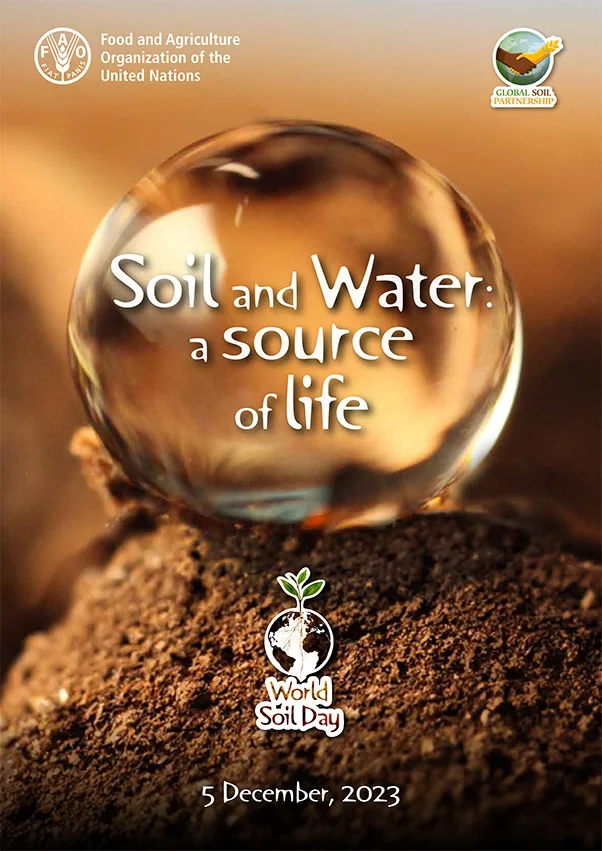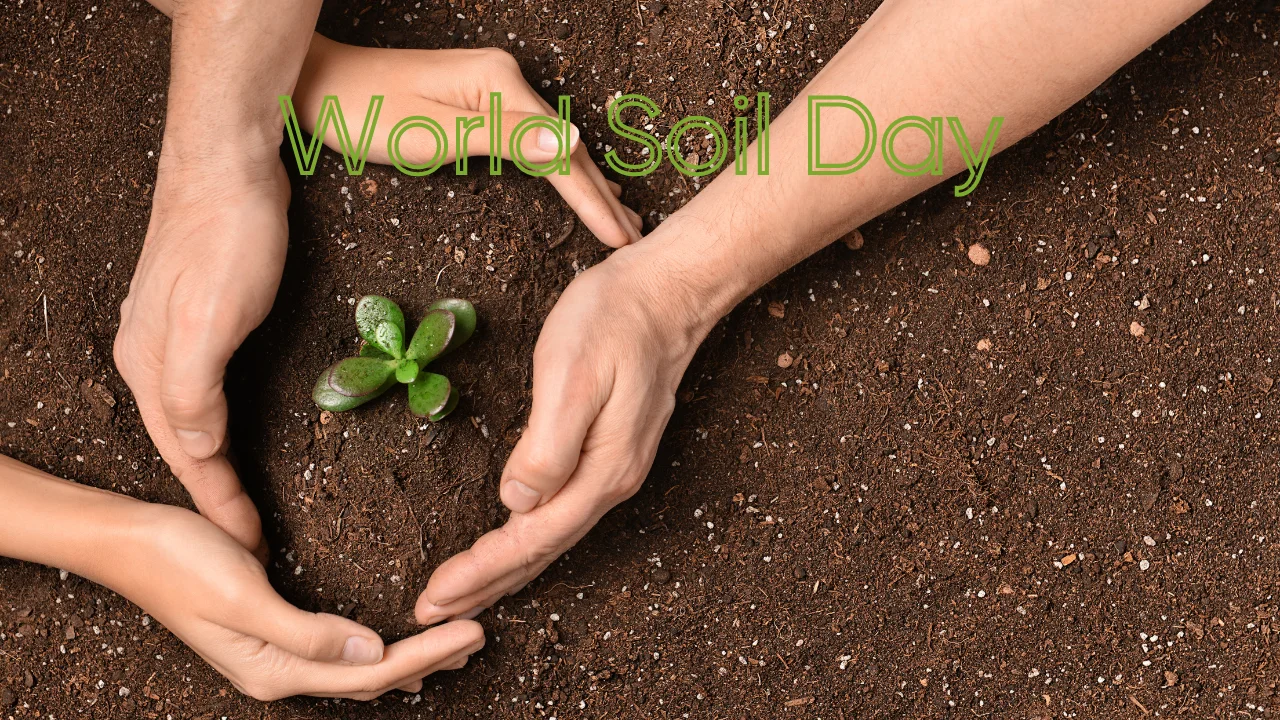World Soil Day 2023
World Soil Day, observed annually on December 5th, aims to raise global awareness about the importance of healthy soil for food production, ecosystem functions, and human well-being. It advocates for the sustainable management of soil resources to protect this vital asset for future generations.
World Soil Day 2023 Theme

World Soil Day 2023 will center around the theme “Soil and water, a source of life”. The survival of our planet is intricately linked to the crucial connection between soil and water, with over 95 percent of our food originating from these fundamental resources. The symbiotic relationship between soil and water serves as the foundation for agricultural systems, playing a vital role in nutrient absorption by plants.
However, the increasing impact of climate change and human activities is leading to soil degradation, exerting excessive pressure on water resources. Erosion disrupts the natural balance, reducing water infiltration and availability for various forms of life.
To address these challenges, sustainable soil management practices, including minimum tillage, crop rotation, organic matter addition, and cover cropping, are essential. These practices not only improve soil health but also contribute to reducing erosion and pollution, enhancing water infiltration and storage. Furthermore, they preserve soil biodiversity, enhance fertility, and play a crucial role in carbon sequestration, contributing significantly to the fight against climate change.
World Soil Day 2023 and its campaign aim to increase awareness of the vital relationship between soil and water in achieving sustainable and resilient agrifood systems. The event serves as a global platform to celebrate soils while empowering and engaging citizens worldwide to contribute to improving soil health.
History of World Soil Day
World Soil Day (WSD) is observed annually on December 5th, aiming to draw attention to the significance of healthy soil and advocate for the sustainable management of soil resources.
The initiative for an international day dedicated to celebrating soil health was proposed by the International Union of Soil Sciences (IUSS) in 2002. Spearheaded by the Kingdom of Thailand and operating within the framework of the Global Soil Partnership, the Food and Agriculture Organization (FAO) has played a pivotal role in supporting the establishment of WSD as a global awareness platform. The FAO Conference unanimously endorsed World Soil Day in June 2013 and urged its official adoption at the 68th UN General Assembly.
Responding to this call, the UN General Assembly designated December 5, 2014, as the inaugural World Soil Day. Since then, WSD has become an annual event dedicated to highlighting the critical role of healthy soil in sustaining life on Earth and promoting sustainable practices for soil management.
Significance of World Soil Day
World Soil Day serves as a crucial reminder of the importance of soil health and the need for concerted efforts to protect and manage this vital resource sustainably. It highlights the often-overlooked role of soil in supporting life on Earth and emphasizes the responsibility we have to future generations to preserve this essential asset.
Call to Action
World Soil Day 2023 calls for collective action to protect and manage soil resources sustainably. It encourages individuals, communities, governments, and organizations to adopt practices that promote soil health, such as:
- Reducing soil erosion: Implement practices that minimize soil erosion, such as planting cover crops, using no-till farming techniques, and restoring eroded lands.
- Enhancing soil organic matter: Increase soil organic matter by incorporating compost, manure, or other organic materials into the soil.
- Minimizing chemical use: Reduce reliance on synthetic fertilizers and pesticides, opting for organic alternatives whenever possible.
- Promoting sustainable agriculture: Support sustainable agricultural practices that protect soil health, such as crop rotation, cover cropping, and integrated pest management.
- Advocating for soil conservation policies: Encourage governments to implement policies that support sustainable soil management practices and protect soil resources from degradation.
By working together, we can protect soil health, ensure food security for a growing population, and safeguard this vital resource for future generations. Let us strive to create a world where soil is valued, respected, and managed sustainably for the benefit of all.
- IBPS PO Vacancy 2025 Out, 5208 Vacancies Released, Latest Update
- Effective Study Strategies for the PFRDA Grade A Statistics
- Antonyms for SSC CHSL, Attempt 40 Questions Practice Set & Know Tips
- SSC CHSL Court Clerk Vs Bank Clerk – Which Job is Better? Know Here
- SSC CHSL Vs Bank Clerk Exam, Which Is Easy To Crack? Check Details
- PFRDA Grade A Lifestyle in 2025, Their Growth and Benefits

Hello, I’m Aditi, the creative mind behind the words at Oliveboard. As a content writer specializing in state-level exams, my mission is to unravel the complexities of exam information, ensuring aspiring candidates find clarity and confidence. Having walked the path of an aspirant myself, I bring a unique perspective to my work, crafting accessible content on Exam Notifications, Admit Cards, and Results.
At Oliveboard, I play a crucial role in empowering candidates throughout their exam journey. My dedication lies in making the seemingly daunting process not only understandable but also rewarding. Join me as I break down barriers in exam preparation, providing timely insights and valuable resources. Let’s navigate the path to success together, one well-informed step at a time.






